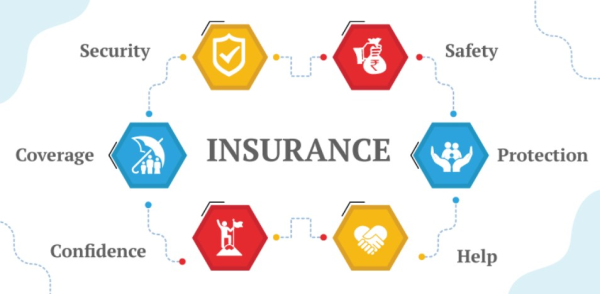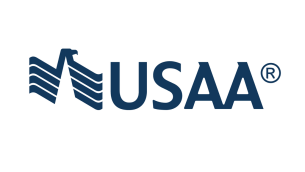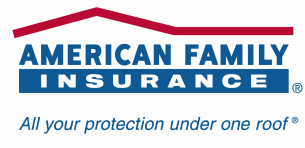Small businesses need to carefully consider the types of insurance coverage they require to protect their assets and mitigate risks. One essential insurance for small businesses is general liability insurance, which provides coverage for property damage, bodily injury, and advertising injury claims. This type of insurance protects business owners from lawsuits and legal expenses that may arise from accidents or injuries on their premises or as a result of their products or services. Another crucial insurance for small businesses is professional liability insurance, also known as errors and omissions (E&O) insurance. This type of coverage is important for businesses that provide professional services or advice, as it protects them from potential lawsuits resulting from negligence, mistakes, or failure to deliver promised services.
In addition to general liability and professional liability insurances, small businesses should also consider getting property insurance to protect their physical assets such as buildings, equipment, inventory, and furniture against damages caused by fire, theft, vandalism, or other covered events. Property insurance can help cover the cost of repairs or replacement of damaged items in case of unforeseen incidents. Moreover, another important type of insurance for small businesses is workers' compensation insurance. This coverage is required by law in most states and provides benefits to employees who are injured on the job by covering medical expenses and lost wages while protecting employers from potential lawsuits related to workplace injuries.
In conclusion, small business owners should carefully assess their specific needs and risks when choosing appropriate insurances for their operations. By investing in comprehensive coverage such as general liability insurance, professional liability insurance, property insurance, and workers' compensation insurance, small businesses can safeguard themselves against financial losses due to unexpected events while ensuring the continuity and long-term success of their ventures.
Small businesses have several insurance options to consider in order to protect their operations and assets. One common type of insurance is general liability insurance, which provides coverage for third-party bodily injury, property damage, and advertising injury claims. This can help protect small businesses from potential lawsuits and financial losses.
Another important insurance for small businesses is property insurance, which covers the physical assets of the business such as buildings, equipment, inventory, and furniture. This type of insurance can help in case of events like fire, theft, or vandalism that could damage or destroy the business's property. Additionally, small businesses may also want to consider professional liability insurance, also known as errors and omissions insurance, which provides protection against claims of negligence or inadequate work performance.
Overall, it is essential for small businesses to carefully assess their specific risks and needs in order to determine the most appropriate types of insurances to safeguard their operations and ensure long-term success. Consulting with an experienced insurance agent or broker can be helpful in navigating the various options available and selecting the best coverage for a small business.
Importance of Insurance for Small Businesses
Insurance is crucial for small businesses as it provides financial protection against unexpected events that could potentially cripple the business. Small businesses often lack the resources to recover from disasters such as fires, theft, or lawsuits without insurance coverage. Having the right insurance policies in place can help mitigate risks and ensure the continuity of operations even in challenging circumstances.
Moreover, insurance can also enhance the credibility and reputation of a small business. Customers, investors, and partners are more likely to trust a business that has proper insurance coverage in place. It demonstrates that the business is prepared for unforeseen events and takes its responsibilities seriously. Overall, investing in insurance is a wise decision for small businesses looking to safeguard their assets and secure their future growth.

Insurance plays a vital role in the success and longevity of small businesses. For many entrepreneurs, their business is not just a source of income but also their life's work. Insurance provides protection against unforeseen events like natural disasters, lawsuits, or accidents that could potentially devastate a business. Small businesses often operate on tight budgets and may not have the financial resources to recover from such setbacks without insurance coverage.
Having insurance can also help small businesses attract and retain employees. Many job seekers consider benefits package when evaluating potential employers, including health insurance, life insurance, and disability coverage. By offering comprehensive insurance options, small businesses can remain competitive in the job market and attract top talent to support their growth. Moreover, having liability insurance can provide peace of mind for both business owners and customers, knowing that they are protected in case of any mishaps or misunderstandings.
In addition to protecting assets and ensuring financial security, insurance can also help small businesses comply with legal requirements. Some types of insurance are mandatory for certain industries or depending on the number of employees a business has. By having the necessary coverage in place, small businesses can avoid fines or legal issues that could threaten their operations or reputation. Overall, investing in appropriate insurance coverage is an essential step for small businesses to safeguard their future growth and success amidst an unpredictable economic landscape.
Types of Insurance Coverage Available
Running a small business comes with its own set of risks and uncertainties, making it crucial for entrepreneurs to invest in the right insurance coverage. One common type of insurance for small businesses is general liability insurance, which provides protection against claims of bodily injury or property damage that may occur on your premises. This coverage can help mitigate financial losses from lawsuits and other legal liabilities that could potentially cripple your business. Another essential insurance option is property insurance, which safeguards your physical assets such as equipment, inventory, and buildings from unforeseen events like fires, thefts, or natural disasters.
Furthermore, small businesses can benefit from professional liability insurance also known as errors and omissions (E&O) insurance. This type of coverage protects you from claims related to professional mistakes or negligence that may result in financial loss for your clients. E&O insurance is particularly important for service-based industries where errors in judgment or advice could lead to costly lawsuits. Additionally, workers' compensation insurance is vital for protecting employees by providing medical benefits and wage replacement if they are injured on the job. By understanding the different types of insurance available for small businesses and selecting the right coverage tailored to their needs, entrepreneurs can safeguard their investments and ensure long-term success despite unexpected challenges.
There are several types of insurance coverage available for small businesses to help protect their assets and mitigate risks. One common type is general liability insurance, which provides coverage for third-party bodily injury, property damage, and advertising injury claims. This can help protect your business from lawsuits and financial losses resulting from accidents or negligence.
Another important type of insurance for small businesses is property insurance, which covers damage or loss of physical assets such as buildings, equipment, and inventory. This can be crucial in the event of disasters like fires, floods, or vandalism. Additionally, small businesses may also benefit from professional liability insurance (errors and omissions), cyber liability insurance, and workers' compensation insurance depending on the nature of their operations. It's important for small business owners to carefully assess their risks and choose the appropriate insurance coverage to safeguard their business interests.
General Liability Insurance
General liability insurance is essential for small businesses as it provides protection against third-party claims of bodily injury, property damage, and advertising injury. This type of insurance helps cover legal fees, medical expenses, and settlements in case a customer or vendor sues your business. By having general liability insurance, small businesses can safeguard their assets and reputation from potential lawsuits that could arise from accidents or negligence.

Additionally, general liability insurance can help small businesses secure contracts with clients who require proof of insurance coverage. Having this type of insurance can give potential customers peace of mind knowing that they are protected in case something goes wrong while working with your business. Overall, investing in general liability insurance is a smart decision for small businesses to mitigate financial risks and protect their long-term success.
General liability insurance is a crucial investment for small businesses, providing protection against various risks and potential liabilities. As a small business owner myself, I understand the significance of having this coverage in place to safeguard my company. This type of insurance typically covers bodily injury, property damage, and personal injury claims that may arise during day-to-day operations. By having general liability insurance, small businesses can mitigate financial risks associated with lawsuits or legal claims brought against them.
Furthermore, general liability insurance helps maintain the credibility and reputation of a small business by showing clients and partners that the company is committed to protecting both its interests and those of its stakeholders. In today's litigious society, even minor accidents or incidents can lead to costly legal battles that could threaten the survival of a small business. Having general liability insurance provides peace of mind and allows business owners to focus on growing their operations without constantly worrying about potential liabilities. Overall, investing in this type of coverage demonstrates responsible risk management practices that are essential for long-term success in the competitive business landscape.
In conclusion, general liability insurance is not just an expense but rather an invaluable asset for small businesses looking to protect themselves from unforeseen circumstances. As someone who values careful planning and risk mitigation strategies in my own ventures, I recognize the importance of having comprehensive coverage like general liability insurance. It serves as a safety net that shields small businesses from financial ruin due to unexpected events and ensures continuity despite challenges along the way. Ultimately, prioritizing security through adequate insurance coverage is a smart decision for any small business aiming for sustainable growth and longevity in today's dynamic marketplace.
Property Insurance
As a small business owner, investing in property insurance is crucial to protect my physical assets and ensure the longevity of my business. Property insurance provides coverage for buildings, equipment, inventory, and other physical assets in case of damage or loss due to events such as fire, theft, vandalism, or natural disasters. By having property insurance in place, I can have peace of mind knowing that my business is financially protected against unforeseen circumstances.
Moreover, property insurance also helps me comply with certain legal requirements and safeguard against potential liabilities. For example, if a customer were to slip and fall on my premises and file a lawsuit for damages, having property insurance can cover legal expenses and settlement costs. This not only protects me from financial ruin but also demonstrates professionalism and responsibility to stakeholders. Additionally, property insurance can be customized to suit the specific needs of my business - whether it's a storefront retail shop or a home-based consulting service.

In conclusion, investing in property insurance for my small business is an essential step towards ensuring its sustainability and growth. By protecting physical assets from risks and liabilities through comprehensive coverage options tailored to the unique needs of my business operations, I am able to focus on delivering quality products/services without worrying about unexpected setbacks. Ultimately, property insurance provides a safety net that empowers me to navigate challenges confidently and secure the future success of my small business.
Property insurance is essential for small businesses to protect their physical assets such as buildings, equipment, and inventory. This type of insurance provides coverage in case of damage or loss due to events like fire, theft, vandalism, or natural disasters. By having property insurance, small businesses can mitigate financial risks and ensure they have the necessary resources to recover and continue operations in the event of a disaster.
When selecting property insurance for a small business, it's important to carefully assess the value of your assets and choose a policy that provides adequate coverage. It's also advisable to review the policy regularly to make sure it reflects any changes in your business operations or asset values. Additionally, working with an experienced insurance agent can help you navigate the complexities of property insurance and find the best coverage options tailored to your specific business needs.
Workers' Compensation Insurance
Workers' compensation insurance is a crucial coverage for small businesses that have employees. This type of insurance provides benefits to employees who are injured or become ill as a result of their work. By having workers' compensation insurance, small businesses can protect themselves from potential financial liabilities and lawsuits resulting from workplace injuries.

Not only is workers' compensation insurance mandatory in most states for businesses with employees, but it also demonstrates a commitment to the well-being and safety of your workforce. By investing in this type of insurance, small businesses can ensure that their employees are taken care of in case of an accident or injury on the job. Additionally, having workers' compensation insurance can help attract and retain top talent by providing a sense of security and protection for employees.
As a small business owner, ensuring the safety and well-being of my employees is paramount. One crucial aspect of this responsibility is obtaining workers' compensation insurance. This type of coverage provides financial protection for employees who are injured or become ill while on the job. By having workers' compensation insurance in place, I can rest assured that my employees will receive the necessary medical treatment and compensation for lost wages in case of a work-related injury.
Moreover, workers' compensation insurance also benefits me as a business owner by shielding me from potential legal liabilities. In many states, having this type of insurance is mandatory for all businesses with employees. Failure to comply with these regulations can result in hefty fines or even legal action against the business. By proactively obtaining workers' compensation insurance, I am not only fulfilling my legal obligations but also safeguarding my business's financial stability in case of an unfortunate workplace accident.
In conclusion, investing in workers' compensation insurance is not just a smart financial decision but also a moral obligation towards my employees. It demonstrates that I value their well-being and prioritize their safety at the workplace. Additionally, by having this coverage in place, I am protecting both my business and myself from potential financial risks and legal consequences associated with workplace injuries. Ultimately, workers' compensation insurance serves as a safety net that promotes a secure and supportive work environment for everyone involved.
Professional Liability Insurance
Professional liability insurance, also known as errors and omissions insurance, is a crucial form of protection for small businesses in today's competitive market. As a small business owner myself, I understand the importance of having this type of insurance to safeguard my company from potential lawsuits or claims arising from professional services rendered. Professional liability insurance provides coverage for legal fees, court costs, and settlements in the event that a client alleges negligence or errors in the services provided by my business.
Moreover, professional liability insurance gives me peace of mind knowing that I am protected against unforeseen circumstances that could jeopardize the financial stability of my company. It not only enhances my credibility and reputation among clients but also demonstrates a commitment to professionalism and quality service delivery. By investing in professional liability insurance, I am taking proactive steps to mitigate risks and ensure long-term success for my small business. In conclusion, professional liability insurance is an essential tool for small businesses seeking to protect themselves from potential legal liabilities and financial losses in an increasingly litigious environment.
Professional liability insurance, also known as errors and omissions insurance, is crucial for small businesses that provide professional services or advice. This type of insurance protects businesses from claims of negligence, errors, or omissions that result in financial loss for their clients. Professional liability insurance can cover legal fees, settlements, and damages in the event of a lawsuit.
Having professional liability insurance can give small business owners peace of mind knowing that they are protected in case a client alleges that their work caused harm or financial loss. It can also help maintain the reputation and credibility of the business by showing clients that they take responsibility for their work and are prepared to handle any potential risks. Overall, investing in professional liability insurance is a smart decision for small businesses to protect themselves from unforeseen circumstances and potential legal liabilities.
Conclusion
In conclusion, selecting the right insurance coverage for your small business is a crucial decision that requires thoughtful consideration. It's not just about complying with legal requirements or protecting against unforeseen circumstances; it's also about safeguarding your hard work and investments. By carefully assessing your business needs and risks, you can tailor an insurance package that provides comprehensive protection without unnecessary costs.
Remember, insurance isn't just a safety net – it can also be a strategic tool to drive growth and stability in your business. Investing in the right mix of insurances, such as liability, property, and cyber insurance, can help mitigate financial risks and enhance your credibility with clients and partners. As your business evolves and expands, regularly reviewing and updating your insurance policies will ensure that you stay adequately protected against emerging threats and changes in the market landscape. In essence, making informed decisions about insurance is integral to building a resilient foundation for lasting success for small businesses.





















